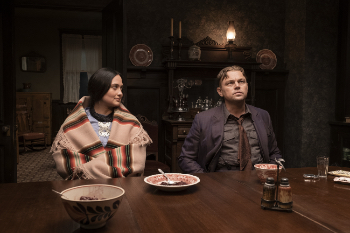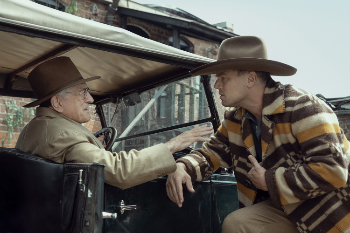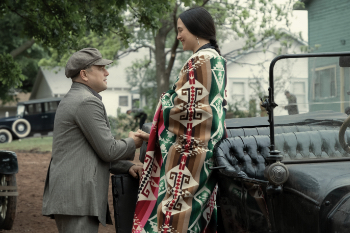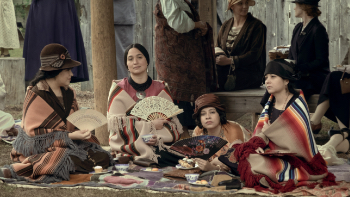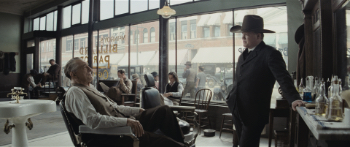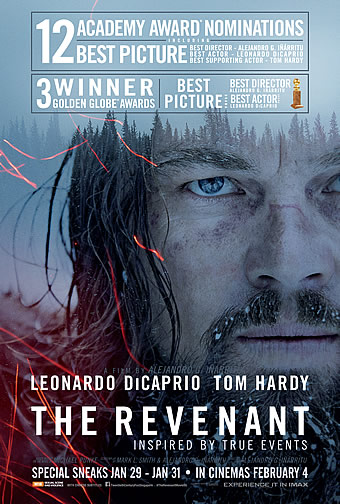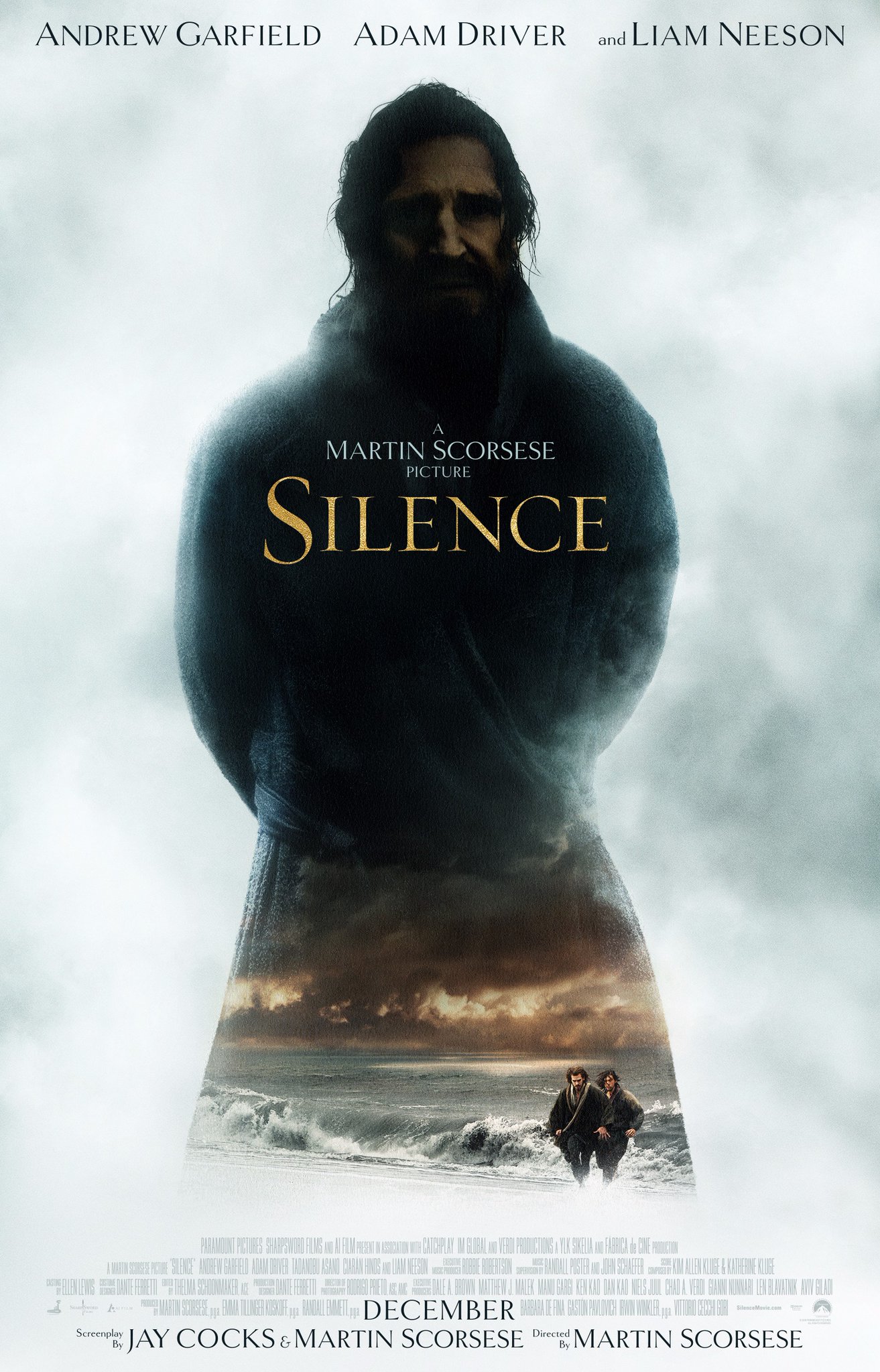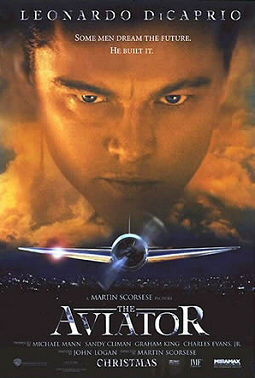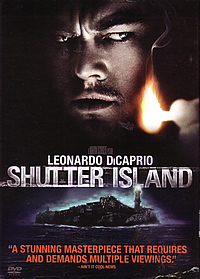KILLERS OF THE FLOWER MOON (2023)
Genre: Drama
Director: Martin Scorsese
Cast: Leonardo DiCaprio, Robert De Niro, Jesse Plemons, Lily Gladstone, Tantoo Cardinal, John Lithgow, Brendan Fraser, Cara Jade Myers, JaNae Collins, Jillian Dion, William Belleau, Louis Cancelmi, Tatanka Means, Michael Abbot Jr., Pat Healy, Scott Shepard, Jason Isbell, Sturgill Simpson
Runtime: 3 hrs 26 min
Rating: PG13 (Some Violence and Disturbing Scenes)
Released By: UIP
Official Website:
Opening Day: 19 October 2023
Synopsis: At the turn of the 20th century, oil brought a fortune to the Osage Nation, who became some of the richest people in the world overnight. The wealth of these Native Americans immediately attracted white interlopers, who manipulated, extorted, and stole as much Osage money as they could before resorting to murder. Based on a true story and told through the improbable romance of Ernest Burkhart (Leonardo DiCaprio) and Mollie Kyle (Lily Gladstone), "Killers of the Flower Moon" is an epic western crime saga, where real love crosses paths with unspeakable betrayal. Also starring Robert De Niro and Jesse Plemons, "Killers of the Flower Moon" is directed by Academy Award winner Martin Scorsese from a screenplay by Eric Roth and Martin Scorsese, based on David Grann's best-selling book.
Movie Review:
Much has been said about how Martin Scorsese had revised his adaptation of David Grann’s 2017 non-fiction bestseller from a procedural that would have Leonardo DiCaprio play an incorruptible Texas Ranger-turned FBI agent named Tom White sent to investigate the mysterious deaths of the Osage Indian nation in Oklohoma, to a drama centred on a conflicted war veteran named Ernest Burkhart who was caught between his love for an Osage tribe member and his loyalty to his rich and powerful uncle William Hale.
With the benefit of hindsight, it is even clearer why DiCaprio had suggested the change in perspective – not only are there too many of such hard-nosed, straight-laced types in other procedurals, there are also contemporary sensitivities that would surely have reacted against the idea of a white-savior Western, especially when the white people were also the bad guys who insinuated their way into the Osage and took advantage of their naivety. It also gives DiCaprio a much more intriguing character, with which he rewards with one of his best performances.
Though it is an expansive story, Scorsese – who shares screenplay credit with Eric Roth – keeps it intimately trained on Ernest. That’s a bold choice, given that Ernest isn’t much of a likeable character. Indeed, what sympathy one might have had at the start (of his gut ‘falling out’, so much so that he had to serve as a cook in the infantry during World War I), as well as positive affections from his courtship and marriage to one of the Osage ladies Mollie Kyle (Lily Gladstone), would have dissipated by the end of the first act when we see how willingly he does his uncle’s bidding, including recruiting the thugs staying in settlements outside of town to murder not only members of the Osage community but also that of Lily’s own family.
If it isn’t yet obvious, the change in storytelling perspective means that the villains now take centre stage, and what righteous indignation or even rage we might feel will only be mollified in the last act with the arrival of White (now played by Jesse Plemons) and the subsequent trial. Even then, Ernest remains a pathetic character, unable to be fully honest and responsible for his actions, especially being complicit in medical chicanery. To his credit, DiCaprio makes no apologies for his character’s nature; on the contrary, DiCaprio empties himself to play essentially a blank character, with a rootless need to belong, a lack of clear purpose and therefore ultimately perfectly innocent yet perfectly guilty in his infantile ignorance.
Against Ernest, Mollie emerges as a perfect complement of astounding restraint and devastating quiet. Gladstone makes it clear that Mollie’s love for Ernest is true and absolute, and her scenes with DiCaprio have a graceful naturalism that grounds the story emotionally. In subsequent scenes, DiCaprio and Gladstone complement each other beautifully – whereas Ernest is physically demonstrative, Mollie is reserved – and it is also this relationship that sets Mollie up to become a victim of unspeakable horrors. Gladstone knows that Mollie is also after all the moral conscience of the entire tale, and injects a serene knowingness into an elegant and even elegiac performance.
Just as significant is DeNiro, who is terrific as Hale. Known as “the King of the Osage Hills’, Hale beguiles you in the first 20 minutes of the film as he welcomes Ernest into his fold with amused prurience. Describing the Osage as “the finest, most beautiful people on God’s Earth”, Hale also makes clear that there is money to be made by laying claim to the Indians’ right to the oil under the tribal lands – that explains why he embraces Ernest’s marriage to Mollie, but equally insists that Ernest must defend his claim on Mollie’s family’s head rights. DeNiro is absolutely fascinating as Hale, a wily con man and predator passing himself off as a pillar of the community.
On his part, Scorsese pays great attention to the Osage way of life, including such details as their wardrobe, behaviour, speech and customs. As example, there is reverence in how he depicts their religious ceremonies; likewise, the significance of dreams and visions, such as how that of an owl is meant to be an omen of death. Scorsese also highlights the political hierarchy of the Osage Nation, including their emphasis on democracy and consensus within and amongst their entire community, even with the wisdom of the elders. Scorsese’s respect for the Osages is venerable, and only reinforces how great a filmmaker he is for being able to set aside all preconceived notions and biases to portray the Osages with unblemished authenticity.
All the above are reasons why ‘Killers of the Flower Moon’ is a towering achievement, even for a director as esteemed as Scorsese and actors as accomplished as DiCaprio and DeNiro. It may have taken close to a decade for this film to come to fruition, but we can confidently say that it is time well spent to not merely be faithful (to Grann’s novel) for the sake of it, but to put forward the best version of a true-crime tragedy as possible. This is a heart-breaking masterpiece for more reasons than one, not least because of the atrocities that the Osage community had suffered but also because we are reminded at the end of it all – by Scorsese, no less – that Ernest and Mollie did love each other very much, which therefore makes what he did even more tragic.
Movie Rating:





(Both intimate and immense at the same time, Martin Scorsese's adaptation of the Osage tragedy is a towering achievement, not just for him but also for his actors - DiCaprio, DeNiro and Gladstone)
Review by Gabriel Chong
You might also like:
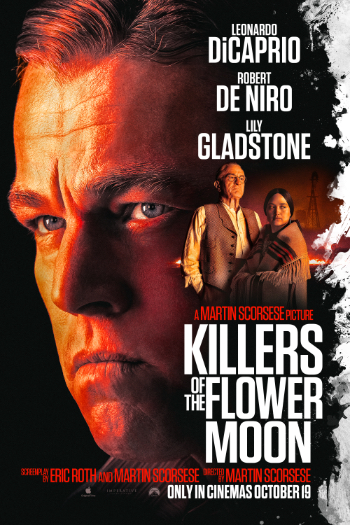
Movie Stills
